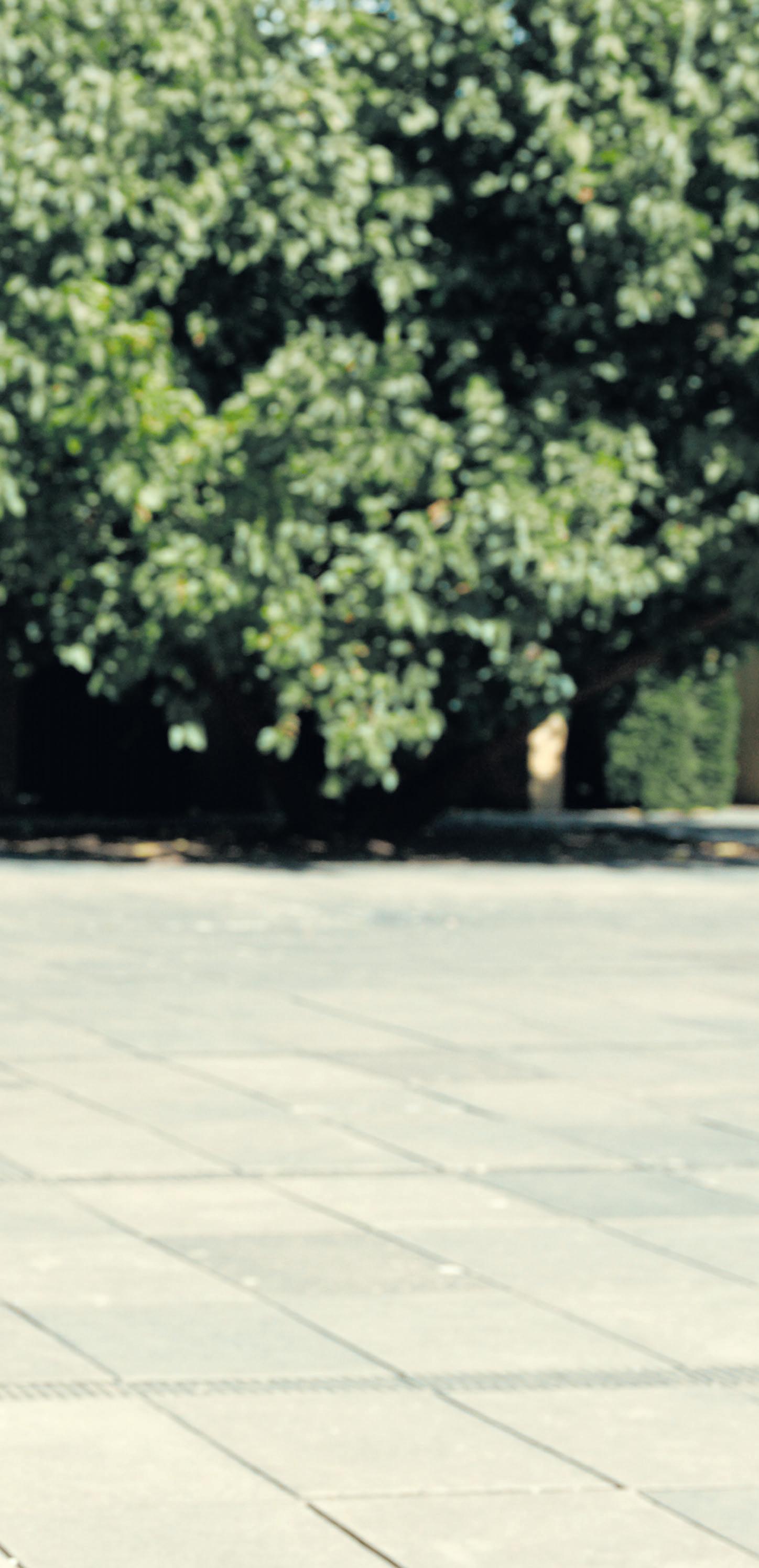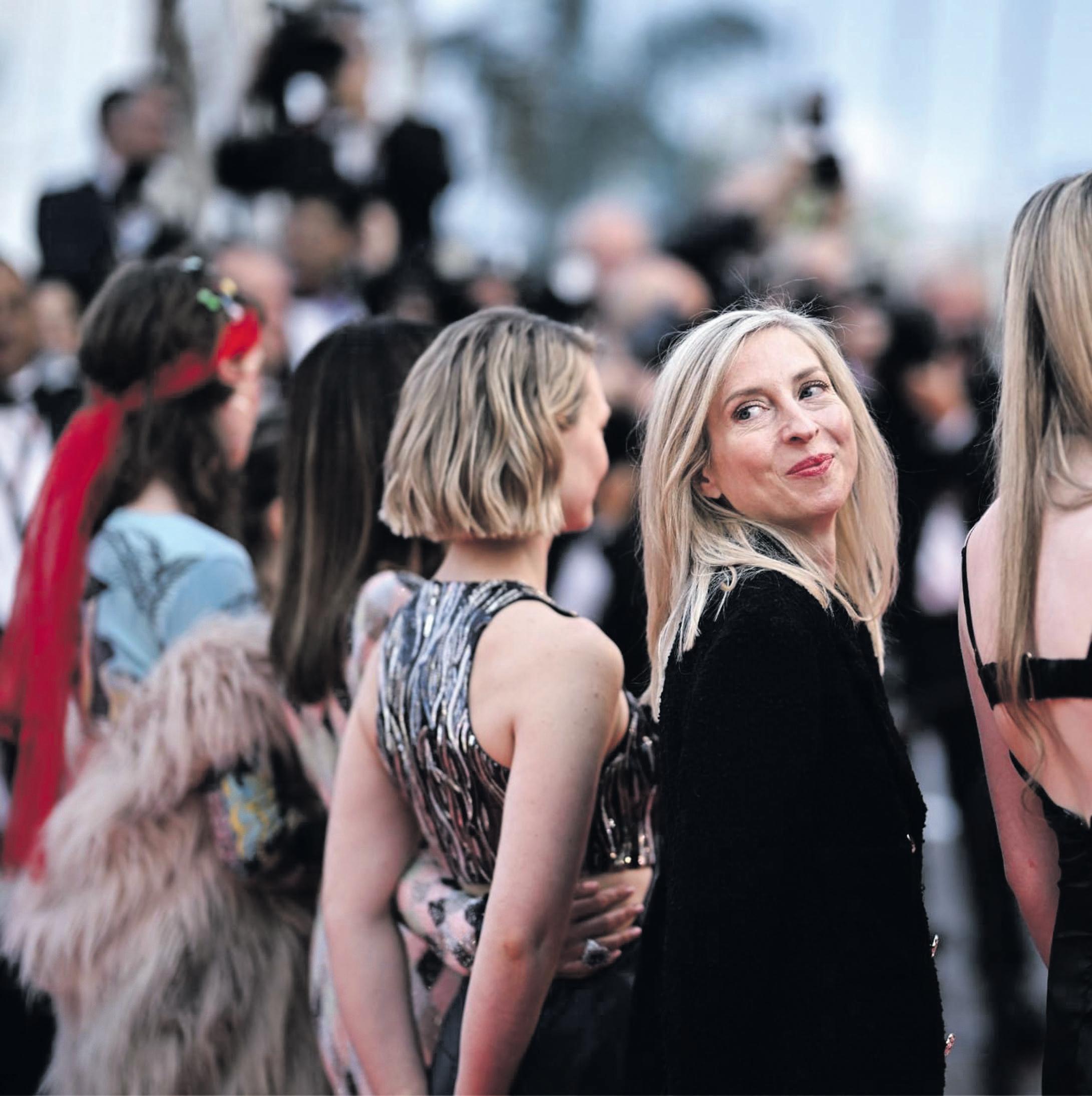
16 minute read
Red is definitely an interesting colour
DL And when it comes to the use of colour in your films? There are, for example, a lot of red elements that keep returning throughout your films. Or are these specific contributions from your sister Tanja that you simply trust to be effective?
JH I trust my sister a lot. Through the years, she and cinematographer Martin Gschlacht have become my most important creative collaborators. At the beginning of each new film project, Tanja reads the script and comes up with suggestions for the visuals. She collects a lot of images, photocopies from art books or fashion magazines, that she finds are connected to the story. We put them on the table, go through them, discuss them, some we keep, some we don’t. It is a mixture of intuition and deliberation. By doing that, we discover the right style and palette for the film.
Red is definitely an interesting colour. It is the colour of love as well as the colour of danger. Both interpretations are very strong in our culture, from red roses for a loved one to a red traffic light meaning stop. Some of my main characters have red hats or red coats or red bags and suitcases. LOVELY RITA wears red shoes. I don’t know if there is any real red in CLUB ZERO…?
DL Club Zero is a notable exception. From using a lot of primary colours in your other films, here you employ a lot of secondary and even tertiary colours: orange, brown, purple, green, all very saturated and faded so that the full palette of the film resembles the colour of vomit… JH Yes… that is interesting… In the case of CLUB ZERO, it also has to do with the location. The film takes place in a boarding school, but we wanted to stay away as far as possible from the Harry Potter vibe. The film was in no way intended as a comment on the British public school system. I wanted it to have a more European connotation. The place we found is designed by the Danish architect Arne Jacobsen and has these brown wooden panels and typical 1960s colours. From there, we started to think what would be a good colour for the school uniform and that is how we landed at this interestingly mean yellowand-purple combination. Normally, the search for locations starts when the script is written, which, in the past, has caused some problems as well, because you never find the exact location you have in mind, and then you must combine different locations. Construct an imaginary geography. With CLUB ZERO, I tried to find the location a bit earlier, so I could implement it in the script, which worked quite well.
DL Speaking of architecture and locations, and how they inform the story, I am also interested in the dynamics between interiors and exteriors in your films. Maybe this allows us to go back to Lourdes, a film inspired by a real location. But it is also a good moment to speak more about your collaboration with Martin.
JH Lourdes grew out of the idea of making a film about a miracle and examining the notion of what a miracle is for us and why we seek them. When I started the research for the film, I investigated different miracles and stories, and places where it has been claimed that miracles have happened, like Medjugorje and Lourdes. I decided on Lourdes because it is so practical in a weird way. There is an office where you can register your miracle, there is a doctor who examines the miracle, and then there is a scientific bureau that decides if there are any possible natural causes. I travelled there several times, did a lot of interviews, and followed some pilgrims and then I wrote the script.
DL In all your films until Lourdes, where it provides the primary context, Roman Catholicism is never far away. Were you raised Catholic? Did you feel that was something you had to deal with artistically?
JH My family was not Catholic but I spent eight years in a Catholic girls’ school. So, I think I experienced a weird contradiction between my school ideology (‘Believe in God’) and my family ideology (‘Believe in yourself’). The result of that might be that I became aware of the fact that every person has their beliefs, however specific or more common they might be – it is necessary in life to feel meaningful. Everyone has something he or she lives up to. Some idea that helps us make our choices, to distinguish right from wrong, to be part of some group that makes us feel safe.
DL Except Lourdes, which premiered in Venice, all your films opened in Cannes, three of them in the Un certain régard section, but your last two films LITTLE JOE and CLUB ZERO were selected for the main competition. How important are festivals for the recognition, distribution, and lifespan of your films?
JH For now I have the impression that, over the years, I built up my body of work and, the more films I have made, the more my ideas and visions have become acknowledged by an audience and been discussed by critics. Film festivals are an enormous help to make films visible to a larger audience and to film critics. This leads to more recognition and helps to distribute the film and to finance the next film.
DL Upon rewatching Lourdes, it struck me even more strongly than the first time that you present Christine, the protagonist, as someone who can be understood as much as a true believer in search of a miracle as a gentle fraud looking for care and attention. I know you will not disclose who and what she is, but if you want to leave me as a spectator with these types of questions, which I think is your intention…
JH Yes…
DL …How, in that case, do you anticipate the kinds of questions or responses people might have while you are making the film?
JH I do anticipate the main questions and I do, like all screenwriters and filmmakers, try to plant them well within the narrative structure. We do a lot of test screenings, but still, when the film is finished, I can be surprised at how the film is understood and received, and how many different interpretations there are. Philippe Bober, who not only co-produces but also sells my films, is always helping me to be ahead of the discussions my films can cause. Meanwhile, I know my films are open to different and even surprising interpretations, which I like.
DL In general, you are hesitant, not to say reluctant, to tell the audience what to think or feel, even in interviews?
Why is that?
JH Because that is what I do as a filmmaker: I show persons and situations from a distanced perspective. And, seen from that point of view, some things we think are important are not that important after all. And furthermore, what is good and right for one person might be wrong and bad for another person. When I think I have understood what you feel, I might be completely wrong. I show how contradictory and incoherent our world is.
DL The way you use music – not to underscore an emotion but to counter it – often creates even more contradictions and contrasts. Why is that?
DL Lourdes also is a bit of a turning point in your work: you become more openly interested in the institutions that represent the big systemic questions and traditions of our time. LOVELY RITA dealt with the power structures within the nuclear family, but with LOURDES, the focus is on religion and belief systems; in Amour fou (2014), it is the ideal of romantic love; Little Joe deals with scientific knowledge, beliefs, desires, and the question of whether we can engineer happiness; and CLUB ZERO tackles the educational system and pushes the idea of manufacturability even further. It seems you are taking on the pillars of our modern world. How intentional was that, bringing this idea about the inexplicability of many of our actions, to the level of the institutions that provide us on the one hand with answers but mostly with dogma, regimens, and life rules?
JH Lourdes helped me to understand that. After that, Tanja and I talked a lot about the use of uniforms. Uniforms determine to what class or level of society we belong – how we are classified. Clothes are instrumental in showing that. Through this insight about clothing, I also started to look differently at the characters in my scripts and realised they are seldom portrayed as true individuals, but often as people who play their role in life because they want to belong, conform, be part of a group, or be awarded with the prize for best pilgrim. After that, I started to envision my characters more explicitly as part of a certain system.
JH In my films, music is an independent tool. It is like another actor in the story, that adds another layer, aspect, or perspective and sometimes even a contradictory emotion. A sad scene becomes weirdly funny or a funny scene becomes absurd. Sometimes, the music adds to the humour, and sometimes adds a question mark: What exactly does this scene want me as a spectator to think or feel?
My films are political, but they don’t tell you what is good or bad
DL When does feminism come into play? Is that somewhere between LOURDES and AMOUR FOU, when you move from the big patriarchal system of religion to the dismantling of romantic love and exclusive, heteronormative relationships?
JH Feminism is a very important topic, but not in the sense that I treat it politically. My films are political, but not in the sense that they are trying to deliver a clear message or become propagandistic. My films don’t tell you what is good or bad. Good art never does. My films are trying to show the different facets of a given situation.
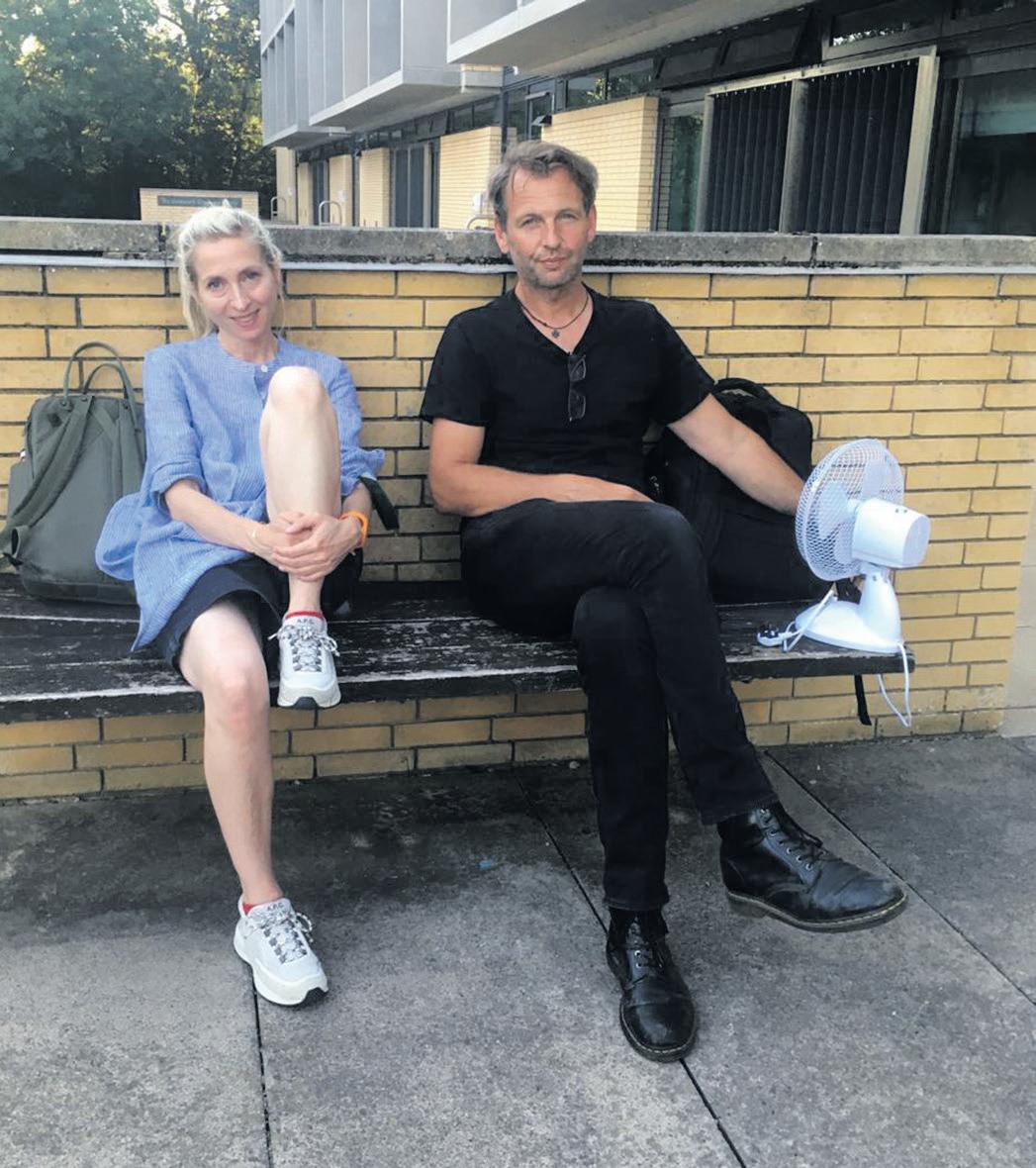

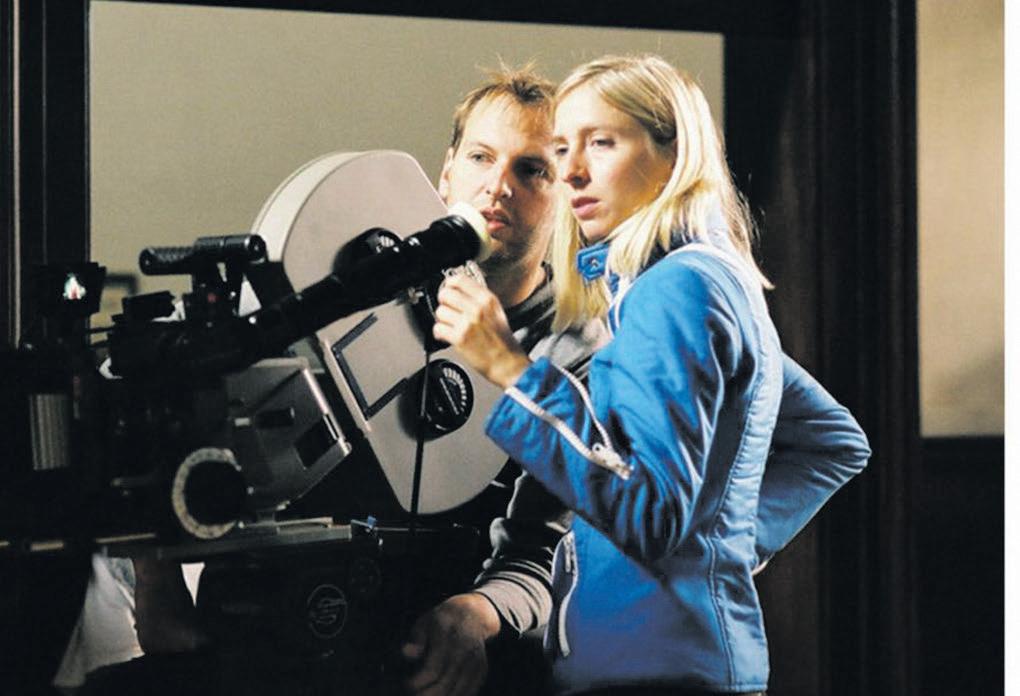
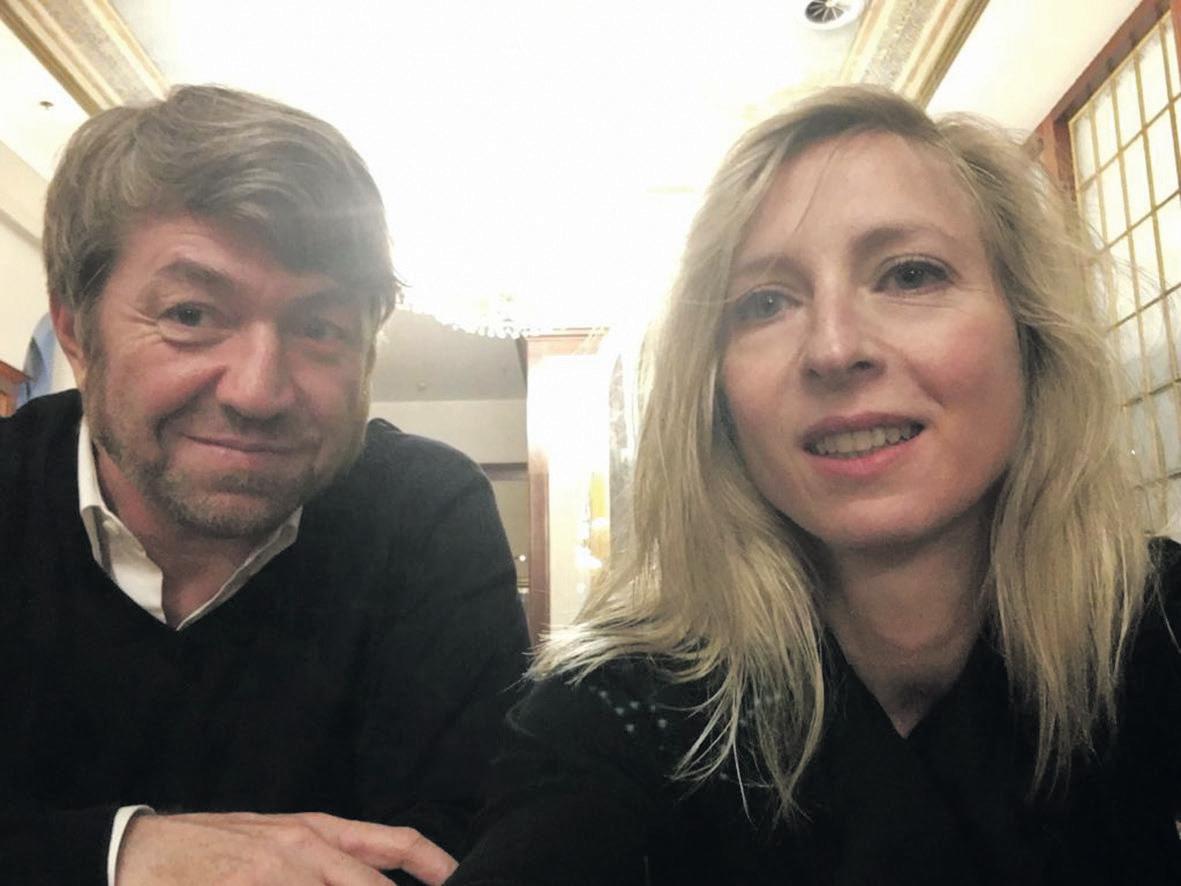
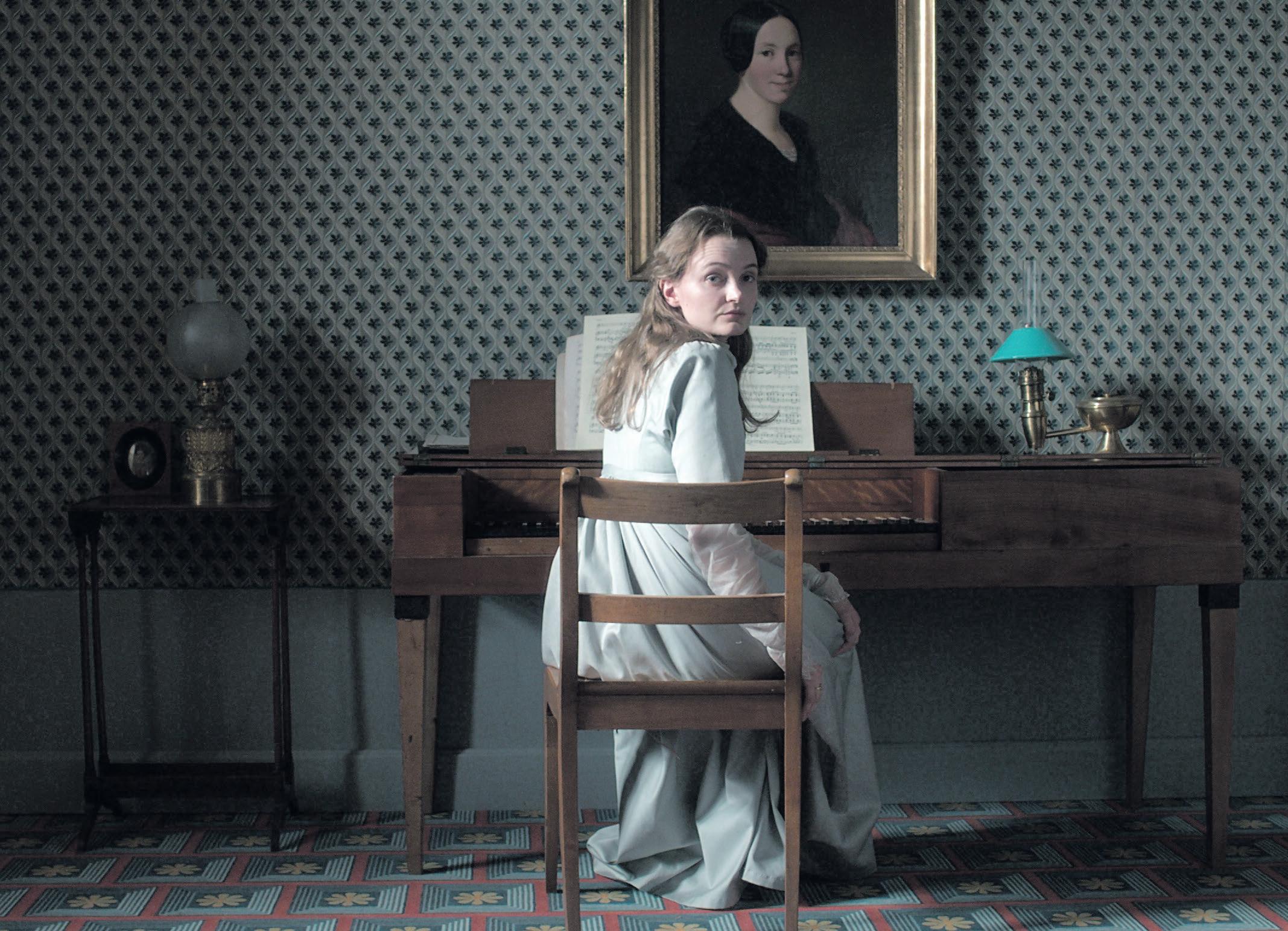
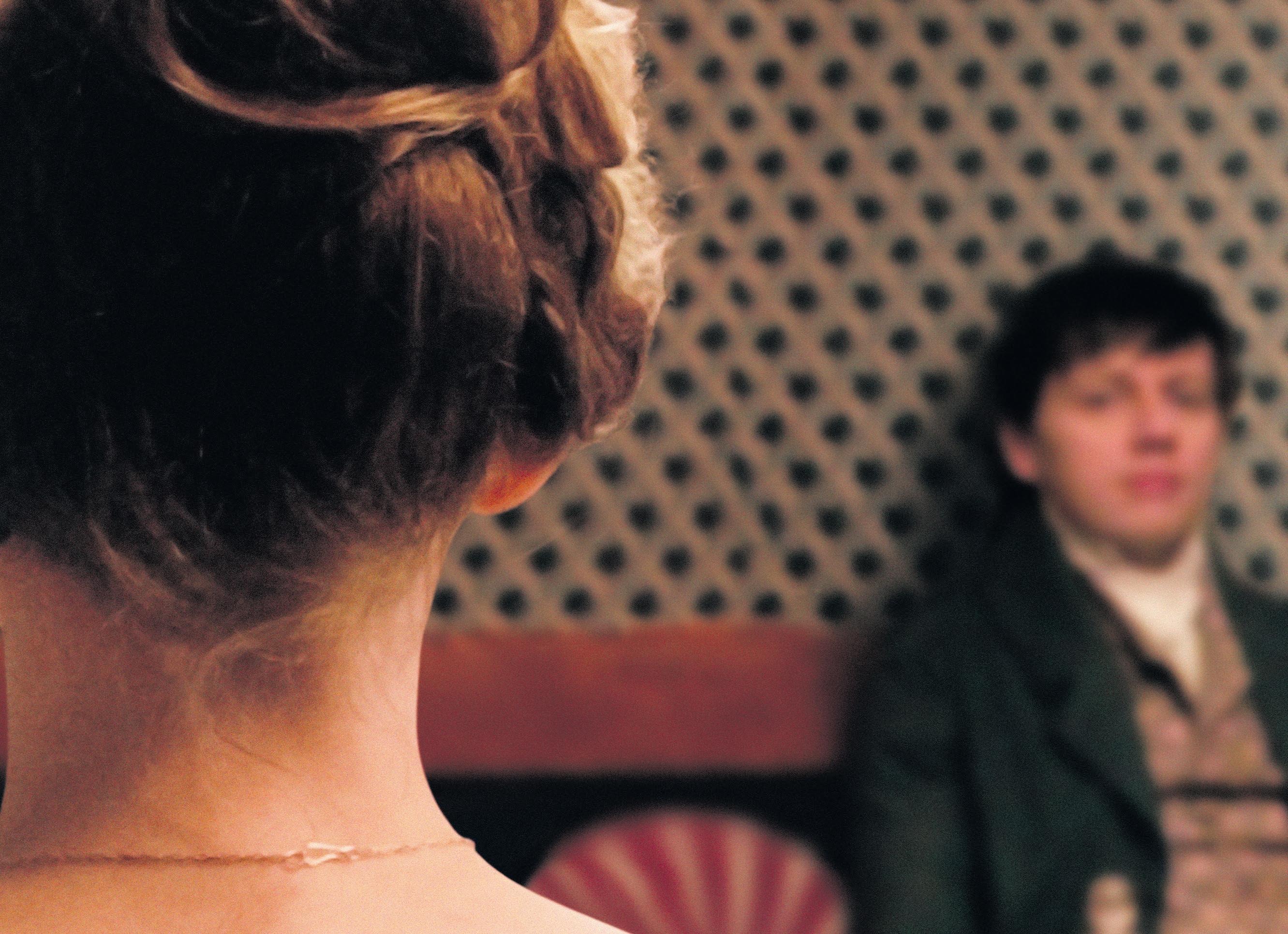
For me personally, feminism is of course very important, because I have always felt like an unseen individual in a man’s world. This is the perspective I grew up with and ran around with for a very long time. And, in my life, the #MeToo movement was an incredibly important breakthrough that inspired a lot of change in the industry, but also changed a lot about my own perspective and my own perception of what I can expect from this life. You find these issues in all my films. Who is the boss and who is the servant? These are the questions that are being deliberated – not only from the feminist perspective, by the way, but also in an intersectional manner. I also address this from the perspectives of class and skin colour, for instance. These patterns are there. Power structures are shown repeatedly in my films. I always try to show how a system of power works. I had already started that with LOVELY RITA, which shows the family as the smallest power system contained within these larger systems.
DL If we speak about power systems per se, maybe we also need to speak about the way they are represented and sometimes perpetuated by audio-visual media. In LOVELY RITA, there is commentary on the media industry. Every time Rita has to serve her parents, the scene quite literally turns into a sort of soapy heightened reality. Is this criticism or this reflection on the power of images something we find in your other films too?
JH What I always tried, right from the beginning, was not to tell an individual story, not to speak about a certain incident in a certain place at a certain time, but to find the general meaning of a story. So, when I thought about Lovely Rita, I did not start from the real story, I started from the idea. The idea was to make a film about a girl who becomes a murderer. From there, I started to look for stories that would help me make that film. So, it is always that way round. I start from a general idea. And I think this is what you see in my films – that the whole aesthetic and style help to create the story on a more universal human level.
DL And the role of cinema itself in recreating or perpetuating certain behavioural patterns, is that something that concerns you?
JH The thing that concerns me most about filmmaking is that it is a big lie to think you can find simple answers to complicated things. That’s what I hate about most films because most films are like that. They try to satisfy us as an audience, which means they attempt to provide meaning.
That is like religion. It’s a similar concept. Religion also tries to comfort you with simple answers. I have never been convinced by any of these answers, neither in filmmaking nor in religion.
together. It happens regularly, but the stories are often very heavy and tragic, and they become very dense when you retell them. Then I read Kleist had asked several different people to commit suicide with him but none agreed – until he finally found Vogel, who agreed to die with him because she thought she was going to die of her illness very soon anyhow. Kleist’s pragmatism in finding his partner for suicide made me smile – I had found the tone for the story: the pact comes first and then you may call it love. Or not. The focus is not on the tragic event, but on the absurdity of it. There was probably not even an erotic or sexual relationship between Kleist and Vogel, although Vogel’s husband says at the end: ‘It was probably love after all.’ He may well be right about that. No one can know what they really felt in those last moments. I don’t think their farewell letters are unequivocal about that either. Or, at least let’s say it’s open to interpretation. But to Kleistians, of course, it was true love.
I find Kleist’s wish to find someone who loves him more than their own life rather narcissistic, and a bit childish. That idea of unconditional love, of course we all know that, and it sounds very nice. People can really be trapped in their ideas about true love. In Amour fou, I show that this love might not exist after all. Back in Kleist’s time, the concept of romantic love was created and it still is a powerful idea in our society. I want to show exactly that: that love is a concept, an idea. But it’s Kleist’s or Henriette Vogel’s truth. That fascinates me. How truth can be relative, historically or sociologically determined, and still the truth. For them.
DL After the role of Catholicism in your earlier films, there is the introduction of a certain aestheticism and ascetism in LITTLE JOE and CLUB ZERO that can be related to belief systems that are associated more with the detachment of Eastern philosophies. In LITTLE JOE through the music, and in CLUB ZERO quite literally through the introduction of the concept of prana (the Sanskrit word for “breath as a life force”). Is that a new turn for you?
JH No. In Little Joe the reason for using the music by the Japanese composer Teiji Ito was as a homage to Maya Deren, whose films he scored. As I said before, MESHES OF THE AFTERNOON inspired me a lot, and he also wrote music for that film. LITTLE JOE is for me once again related to Deren’s films, in a similar way as HOTEL was related to her work. I found this other composition by him, called “Watermill”, that I used in the film. Since it was the first time I really used a score, I did not want to do it in a conventional way. To have that Western story about science alongside this Japanese music is once again a way to create a juxtaposition, a question mark, that both enhances and contradicts the story.
DL Little Joe revolves around the search for artificial happiness, and the invention of this anti-depressant plant maybe comes from noble intentions but the result is that people start behaving in a quite indifferent and detached manner. Once again, you don’t have to respond to this evaluation of the film, but I am curious how you work with actors, especially in a language that is not your tongue, to create a style of performance that is so open and lucid that it enables a variety of readings of the film.
DL Does that give them enough to work with? As a child of actors, listening to dinner table conversations, I learned a lot about transformation, embodiment. And a lot of time actors ask for motivations to translate into action.
JH Some actors understand very easily what I am trying to achieve, because they understand that we are never our authentic selves. I don’t know where the authentic self of any person is. What we do is play different roles in society.
When I am talking to you now, I am playing the filmmaker. I won’t talk to you about my motherhood or my love life. All of that is beyond the horizon of this conversation. We are playing our roles now and we would do very badly of all of a sudden, if I were to ask you a very personal question, or if you asked me a very personal question. Without being aware of it all the time, we are always playing a certain role, no matter the situation or who we are talking to. This is what I talk about with the actors.
If you dive into that, it is very rich inspiration for an actor. Because then you start to ask yourself: Who is the secret boss in the room? Who needs to please whom? Who wants to improve their place in the system, and how? Who is the loser, and why? Thus, I describe a specific power system.
There are some basic behaviours that we all apply in all situations of life. Because we want to survive. That is the level I am trying to find. Some actors get it immediately, others try to be more – I don’t know what – original. And then I tell them: don’t be original, just be archetypical, understand what it is that you are really doing in the scene.
Not to be embarrassed is a strong motivation for my characters
DL Do you really believe people are always displaying desirable behaviour? Maybe it would be extremely refreshing if I told you something unexpectedly personal?
JH All of this is personal. It is just agreeing on what is appropriate in order to survive within society. It would not be good for you to ask me about my sex life because people might not hire you as a interviewer anymore.
DL Maybe a question about your sex life would be pushing it, and I would probably feel too embarrassed to do that…
JH That is exactly what I am talking about. In my perception, not to be embarrassing and not to be embarrassed is the strongest motivation in our lives. Because it helps us to survive.
DL On the other hand, the unexpected can provoke something artistically satisfying. So, let’s use the concept of embarrassment in a professional context. Have you ever watched a film that made you feel embarrassed?
JH It’s not about feeling embarrassed as an audience but understanding that we do things in order not to be cast out of society.
DL AMOUR FOU is about the suicide pact the German romantic poet Heinrich von Kleist concluded in 1811 with the terminally ill Henriette Vogel.
JH It started with an interest in group suicide. I was curious about people;s motives for ending their lives
JH I ask the actors to behave like they would behave in reality, and in reality we normally try to be very polite, fit in, say the right things in the right moment. We are not very authentic in real life. Generally, we try to please other people. That is what I ask the actors to do, and that is the most realistic way of acting I can think of.
DL As a spectator, one often feels a certain form of vicarious shame. Is that what you want to make us feel?
JH Well, understanding our own weaknesses and our behavioral patterns can of course cause a feeling of shame or embarrassment in the spectator.
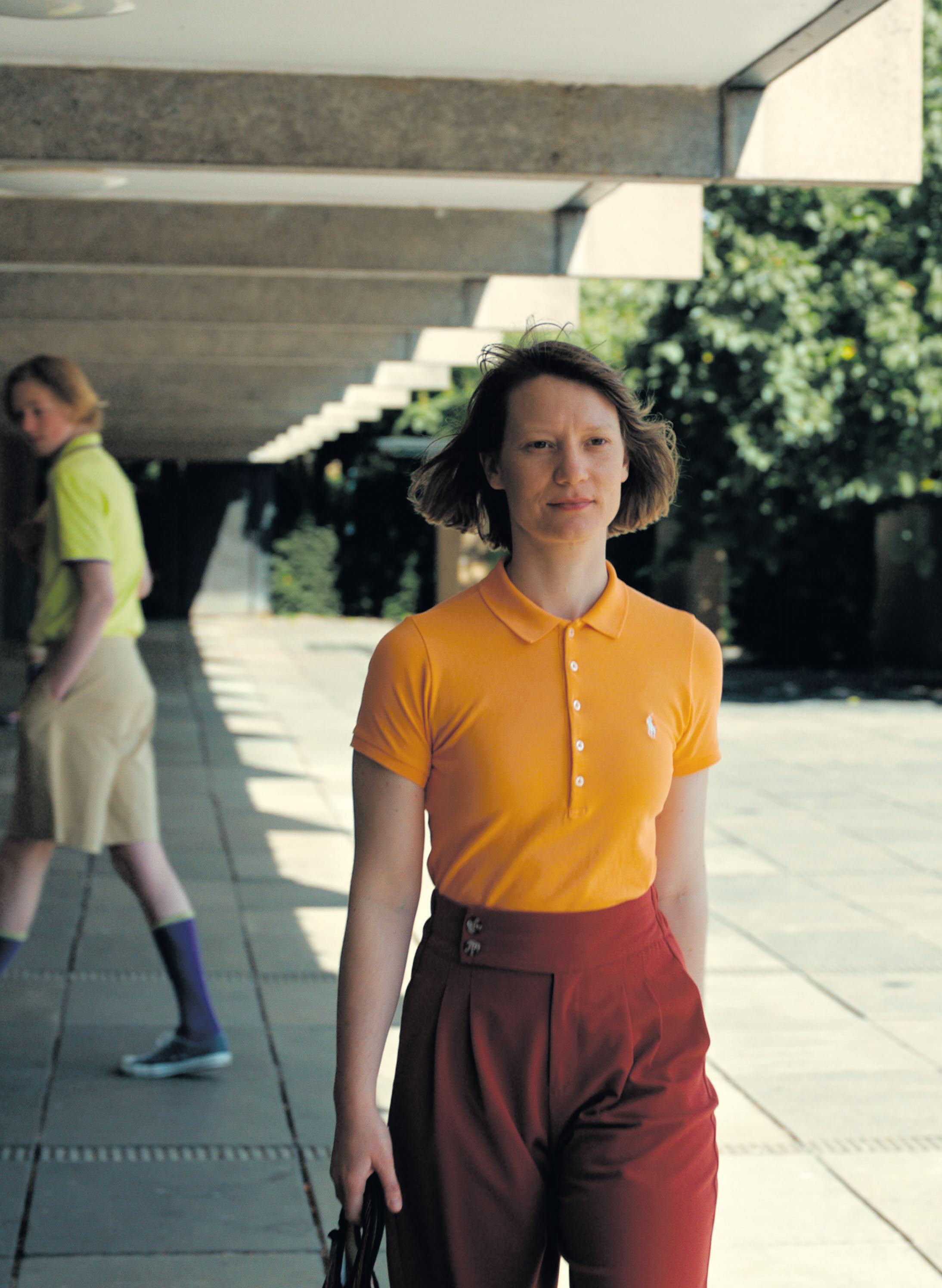
DL Let me rephrase a bit. Your films deal with big emotions that are sometimes suppressed through social constructions and behavioural patterns…
JH Yes.
DL And then you leave it to the audience to make up their own minds about the situations you are creating.
JH No. What I leave to the audience is only the solution. My films are very clearly depicting us in our roles as human beings, but the films don’t offer any salvation. They don’t show the exit because there is none.
DL But control is not only a theme in your films; they are themselves created in a very calm and composed way. CLUB ZERO is all a about self-control, discipline, perfection. So, I was wondering how, in your filmmaking, you balance the Apollonian and the Dionysian, the restricted and the intuitive, in order to maintain a certain freedom as an artist?
JH That is a weird question. In CLUB ZERO there is a lot of Dionysian energy. I find for example the character of Ms. Novak highly irrational. And also, the character of Elsa, the young girl who eats her vomit – her behaviour clashes with everything she is supposed to do. That is a very wild and anarchic element in that film. the interesting thing about art is that tension, that contradiction between the feeling that this is the person I should be, and this is the person I also want to be. All my films talk about that tension and that contradiction. The technique I use to show that is showing the suppression of feelings, because that creates the tension. If you have someone who feels bad and cries out loud, OK, the tension is out. If, on the other hand, you show someone who is sad and swallows their tears, than you have a very intense scene.
DL This is, I think, a perfect ending for our conversation –but now I still have to ask you the Godardian question on my screen: Do you believe in freedom?
JH [Laughs] In small pieces, in specific times, places and moments, yes. In general, not so much.
Dana Linssen is a film critic, writer, philosopher, and freelance curator from the Netherlands. Since 1998, she has been a critic for the daily nationwide newspaper “NRC” and contributor to the film magazine “de Filmkrant”, where she was Editor-in-Chief and later also Publisher from 1998–2019. For the International Film Festival Rotterdam, she programs the Critics’ Choice section, which is known for its video essays produced for the big screen. Linssen is the founder of the Slow Criticism Project, a loose series of inventions and interventions to counterbalance the commodification of film criticism; she teaches at the Utrecht University of the Arts and the ArtEZ Theatre Academy in Amsterdam. In 2020, she was asked to write a strategic plan for the new Dutch talent incubator FilmForward, where she was a quarter master during the start-up phase and where she is currently the head of studies of the Vrijplaats talent residency for film and audio-visual creators. She sits on the selection committee of Berlinale Talents and is a longstanding mentor of Berlinale and Sarajevo Talents Press. When she is not writing about cinema, she develops texts for theatre and other performative practices. “Kroon”, her latest play, premiered in 2022 at Het Zuidelijk Toneel in the Netherlands. She has contributed to monographs about Chantal Akerman, Jem Cohen, Christoph Girardet and Matthias Müller, Sara Rajaei, Fiona Tan, Béla Tarr, and Apichatpong Weerasethakul, among others. She is also a time traveller.
